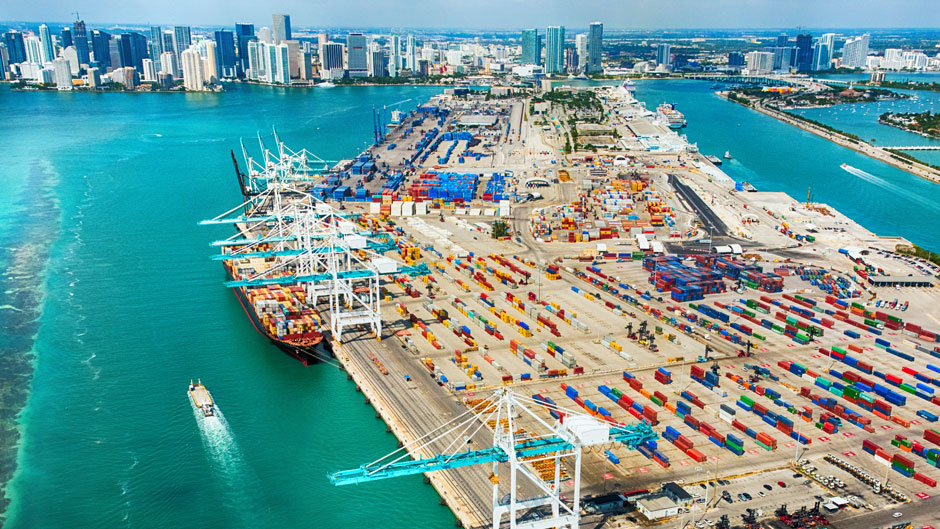The trade war between the world's two biggest economies has reached a critical point. Last week, President Donald Trump raised an existing 10 percent tariff on many Chinese imports to 25 percent on approximately $200 billion of Chinese goods. China responded by raising its own tariffs on many American imports. University of Miami Business School Dean John Quelch and political science professor June Teufel Dreyer about the effects of the tariff battle.
Who gets hurt by China's new tariffs on American goods?
 Quelch: Consumers in both countries have to absorb the cost of the tariffs but, in fact, consumers worldwide will be impacted because of the interdependent global trading system.
Quelch: Consumers in both countries have to absorb the cost of the tariffs but, in fact, consumers worldwide will be impacted because of the interdependent global trading system.
How will this affect every day Americans?
Quelch: Say a retailer buys from China a quarter of the goods it sells. Assume the average retail price is double the pre-tariff purchase price and that all 25 percent of the tariff is passed through to consumers. The retailer’s average prices would rise 3 percent.
 Dreyer: Average Americans may see prices for certain commodities, which we import from China because of its low-cost labor, rise. But this may be temporary, since other countries such as India and Vietnam also have low cost labor, and we can arrange to import from them. Chinese workers will be hurt if that happens. Since China buys far less from the U.S. than the U.S. buys from China, the adverse effect on the Chinese economy could be worse than on the U.S.
Dreyer: Average Americans may see prices for certain commodities, which we import from China because of its low-cost labor, rise. But this may be temporary, since other countries such as India and Vietnam also have low cost labor, and we can arrange to import from them. Chinese workers will be hurt if that happens. Since China buys far less from the U.S. than the U.S. buys from China, the adverse effect on the Chinese economy could be worse than on the U.S.
What kinds of products are being affected by this price hike for both countries?
Quelch: U.S. imports from China include cell phones, laptops, and other consumer electronics along with many consumer household products. U.S. exports to China range from high tech Boeing aircraft to soybeans at the other end of the spectrum.
Why did these tariff hikes come about to begin with?
Quelch: Western governments and multinational companies have long complained about Chinese theft of intellectual property, forced technology transfer in return for market access, and unfair subsidies of state-owned enterprises that contradict World Trade Organization regulations. Previous agreements to resolve these issues have not been enforced by the Chinese authorities. The U.S. is trying to exploit the 5 to 1 asymmetry in U.S.-China trade to level the playing field for foreign companies doing business in China.
Dreyer: Part of President Trump’s campaign involved promises to reduce the U.S. trade deficit with China, since its regulations, some of which run counter to promises made when the People's Republic of China acceded to the World Trade Organization, advantage Chinese companies over U.S. companies. Trump is now trying to make good on his promises. The Chinese leadership understandably doesn’t want this privileged situation to end and is retaliating.
Do you see an end in sight to this trade war?
Quelch: I am optimistic that further escalation can be avoided if the two sides can meet halfway. There is tension in both capitals between hardliners and doves. Momentum is currently with the hardliners (in the U.S.) who see China as an existential threat and who (in China) see the U.S. as a bully to be rejected. I expect cooler heads will prevail. Note that the Chinese tariffs do not go into effect until June 1, allowing two weeks for an interim compromise agreement to be worked out.
Dreyer: No one knows how this will end. Sooner or later some deal will be reached. Neither Trump nor Chinese leader Xi Jinping wants to lose this, since their prestige, both international and in their own respective countries, is involved.

